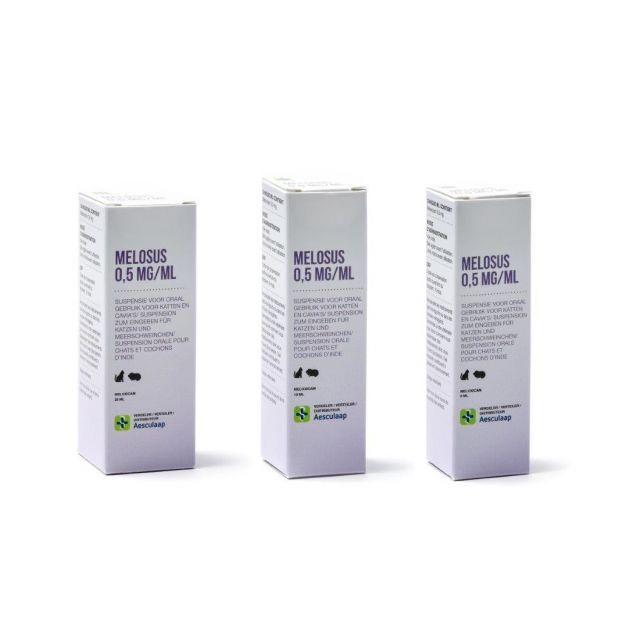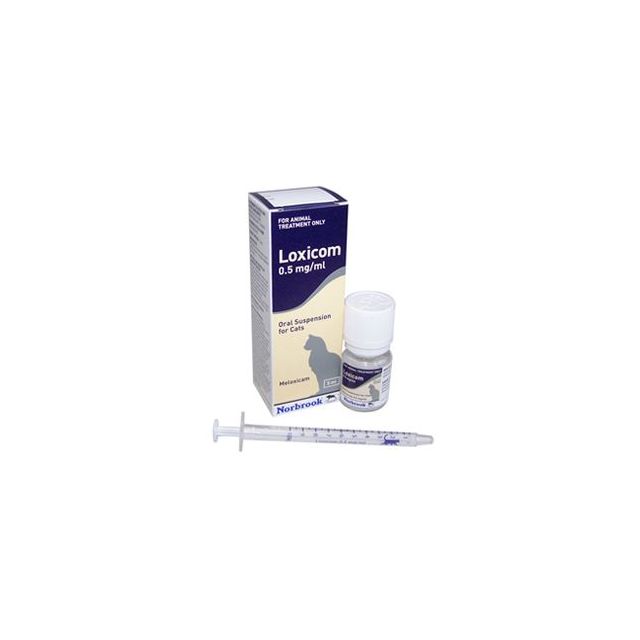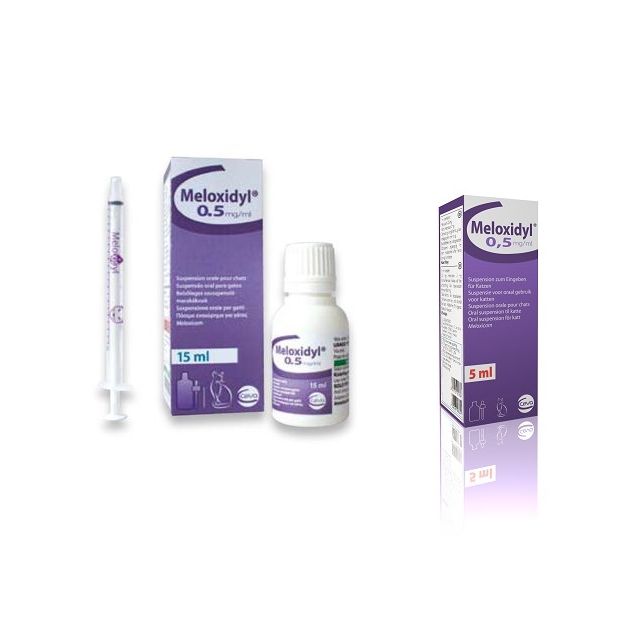Painkillers for the cat
No pet owner wants their cat to be in pain. Fortunately, there are various painkillers available for cats nowadays. This allows pain in cats to be increasingly better, more specifically, and safely managed. Pharmacy4pets can support your cat with prescription painkillers.
Pain in cats
Pain serves the function of preventing further damage to the body. A cat with a sore paw will avoid moving the paw, allowing it to heal faster. However, prolonged or severe pain negatively affects well-being and slows down recovery. In nature, displaying pain is equivalent to weakness. Therefore, cats often do not show well that they are in pain. Sometimes it is clear, for example, if a cat is limping, but much more often the signals are much more subtle; changes in behavior or posture, for example. This often means that pain is only discovered late or that less movement and more sleep of a cat with pain due to arthritis are dismissed as old age. It is therefore important to recognize pain.
Types of painkillers for cats
There are various types of pain relief. The choice of a painkiller depends on the type and severity of pain, where the cat has pain, and whether there are underlying health problems such as vomiting or chronic kidney disease. All painkillers for cats can only be prescribed after a clinical examination by the veterinarian, so you cannot buy painkillers without a prescription.
NSAIDs
The NSAID, the non-steroidal anti-inflammatory drug, is by far the most commonly used painkiller in cats. NSAIDs work not only as pain relievers but also as anti-inflammatories and fever reducers and are usually given as the first choice for pain relief in problems with the musculoskeletal system, after surgery, in inflammations, fever, or injuries. NSAIDs can be administered by injection, but are also available as palatable liquid and in tablet form. Although NSAIDs are widely used and many (especially older) cats receive these painkillers even for life, there is a chance of side effects. Like humans, NSAIDs can, for example, be bad for the stomach. Therefore, NSAIDs should not be given if a cat is vomiting or not eating. They should not be combined with corticosteroids, and for certain underlying conditions, other painkillers may be a better choice.
Other painkillers for cats
There are also other painkillers available for cats besides NSAIDs. For vomiting and abdominal pain, an injection can be given that works against both nausea and abdominal pain. Opioids are very strong painkillers that also have a sedative effect. Opioids are used, for example, during or after surgery. They can also be used if a cat cannot receive NSAIDs (if the cat, for example, vomits, does not eat, or has bloody diarrhea). Furthermore, they are often combined with NSAIDs in case of severe pain to provide stronger pain relief for the cat. In cases of neurological pain, specific painkillers can be given if other painkillers alone have insufficient effect. For a number of years now, there has been a special painkiller available for cats with arthritis that is given once a month by injection. This painkiller blocks the transmission of the pain stimulus to the nerve and often effectively reduces pain.
Can painkillers for humans be given to cats?
The answer to this question is simply NO. Painkillers used in humans, such as paracetamol, ibuprofen, diclofenac, and aspirin, MUST NOT be used in cats. The use of these painkillers is very dangerous and even at low doses can cause serious symptoms and even death in your cat.
Other measures for pain
If possible, removing the cause of the pain is obviously the best. A painful abscess from fighting must be opened and flushed and treated with antibiotics, a fracture must be repaired, and a wound must be stitched.
In the case of pain due to arthritis, you can make it easier for your cat by creating steps so that she can reach her favorite resting place on the windowsill. Also, combating or preventing overweight is enormously important in cases of arthritis. Special dietary food such as Sanimed Weight Reduction can help with this. Flexadin Advanced and Fortiflex are supplements to support healthy joints.
Sometimes your cat may appreciate extra attention when she is in pain, sometimes she may prefer to be left alone. In case of pain after a dental treatment, temporary soft food may be pleasant for your cat. There are numerous measures to make your cat with pain as comfortable as possible.
No cat should have to suffer pain, so it is important that you as an owner are aware of the sometimes subtle signs of pain in your cat. The veterinarian will determine the cause of the pain and advise the appropriate painkillers for your cat. If you have any questions about our products or the use of painkillers for your cat, please contact us.







